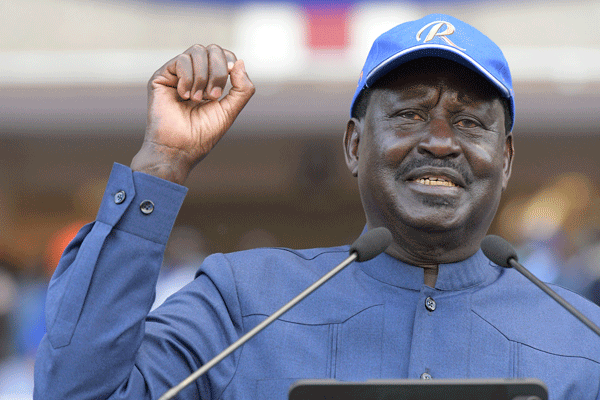Learn from Kenya by protecting free speech

A woman screams at police officers at the St Theresa Girls Secondary School polling station and counting centre, one day after Kenya's general elections in Nairobi on August 10, 2022. PHOTO/AFP
What you need to know:
The issue: Free speech
Our view: We urge the parliamentary committee on ICT to iron out the grey areas in the legislation that will ensure that lightning strikes twice.
Dr William Ruto’s victory speech after being declared the winner of Kenya’s presidential election on Monday was a polar opposite of what President Museveni mustered last January. The former struck a conciliatory note by “thank[ing] my worthy competitor” while declaring “in this election there are no losers.”
Mr Museveni had little time for such niceties that compel one to be magnanimous in victory. He could not have been clearer about what awaited any dissenting views after beating Mr Robert Kyagulanyi, aka Bobi Wine, to the presidency. Riots, Mr Museveni stressed, would be “dealt with decisively; not like the other time”.
In the wake of the recent presidential poll, it is important to be clear about what Kenya is not. Its teething problems should not invite observers to conclude that it bears comparisons with hybrid regimes like ours. That’s why it will be consequential what sort of relationship Ruto works up with the media. Kenya’s president-elect has shown himself to have the sensible strategic moves of a skilled politician, even declaring that the ethnocentric politics of Kenya has now given way to “issues”.
Ruto has also not shied away from declaring that the media gave him the short end of the stick during the electioneering period. In a region where increasingly censorious cultures have been allowed to flourish, it is important that Kenya’s fifth president champions free expression. Threats intended to intimidate, silence and terrorise the media are the calling card of not even hybrid regimes but rather their authoritarian cousin. Addressing himself to how the Kenyan media covered him while on the campaign trail, Ruto didn’t—thankfully—threaten any reprisal. He rather asked that the fourth estate be “free and fair.”
The 55-year-old further revealed that he is not averse to criticism as long as a fair shake is afforded. This declaration should make every Kenyan either side of the political divide sanguine no least because free speech is fundamental to human development. A defence against erosion of free speech across the border should also have a catalytic impact in Uganda. With the draft Information and Communications Bill, 2022 set to be pondered sooner rather than later, it is our fervent hope that the process is not treated as a zero-sum game.
The top brass from the ICT and National Guidance ministry yesterday met the parliamentary committee on ICT and appraised it about a Bill that among others sets out to create a single regulator for the information and communications sector. The draft principles of the Bill are, the committee was told, before the cabinet.
If it gets the green light, the Bill will merge the regulatory functions of the Uganda Communications Commission, the Media Council and the National Information Technology Authority, Uganda. The ICT and National Guidance ministry reasons that the creation of a single regulator will mirror the outlook in Kenya.
We applaud the move to embrace this best practice, but hasten to add that it should be a cosmetic exercise. Kenya has come through an election in which neither Internet connectivity was restricted nor social media platforms blocked. In Uganda, draconian laws like the National Information Technology Authority, Uganda Act, 2009 and the Uganda Communications Act, 2013 have been used to curtail the online information ecosystem during elections. We urge the parliamentary committee on ICT to iron out the grey areas in the legislation that will ensure that lightning strikes twice.
Our commitment to you
We pledge:
- To be accurate and fair in all we do.
- To be respectful to all in our pursuit of the truth.
- To refuse to accept any compensation beyond that provided by Monitor Publications Ltd. for what we do in our news gathering and decision-making.
Further, we ask that we be informed whenever you feel that we have fallen short in our attempt to keep these commitments.




